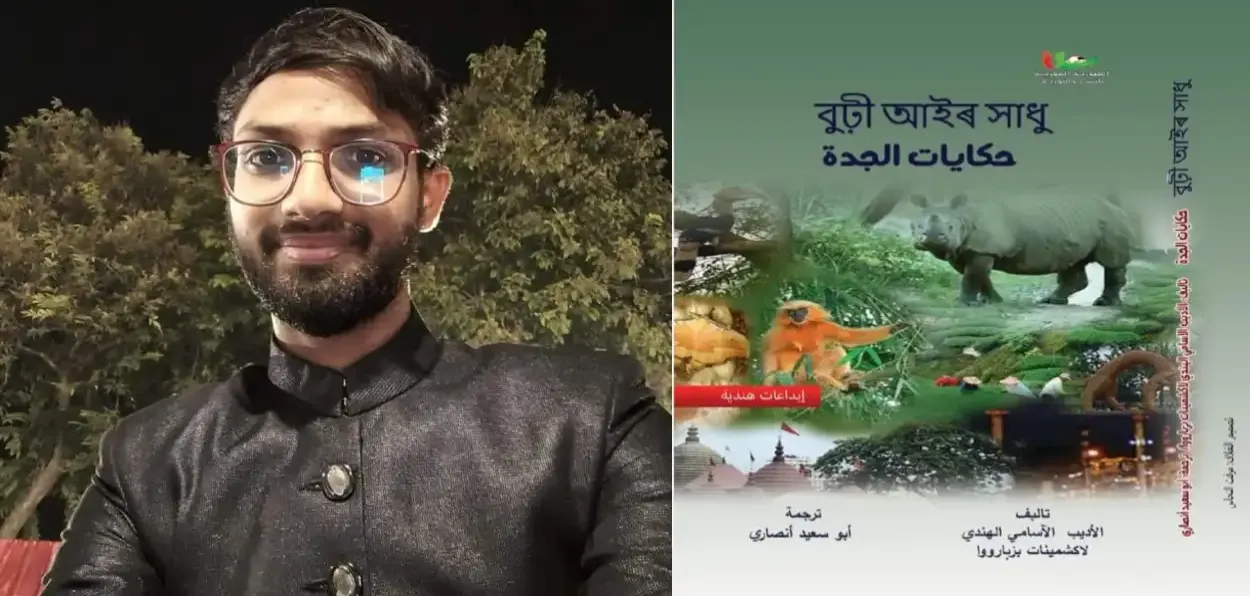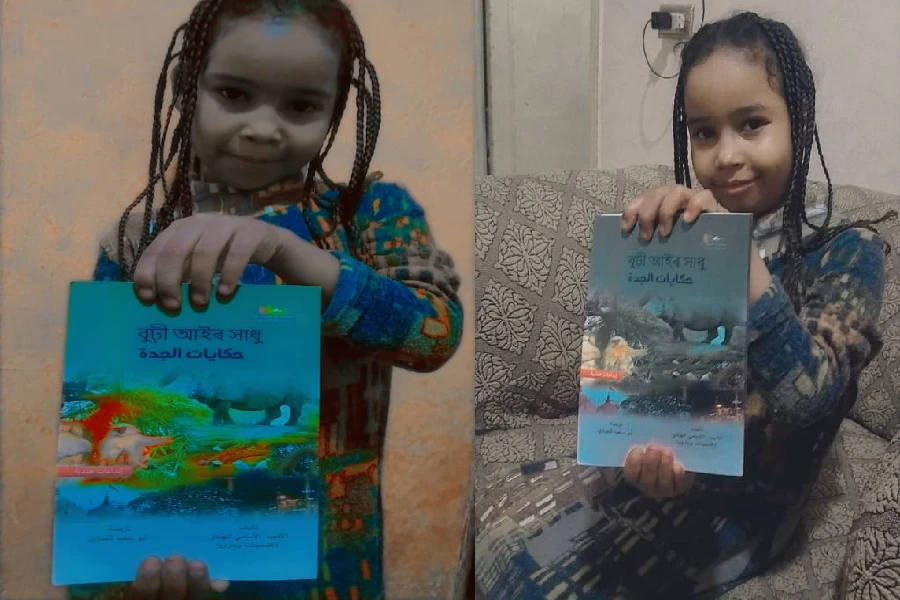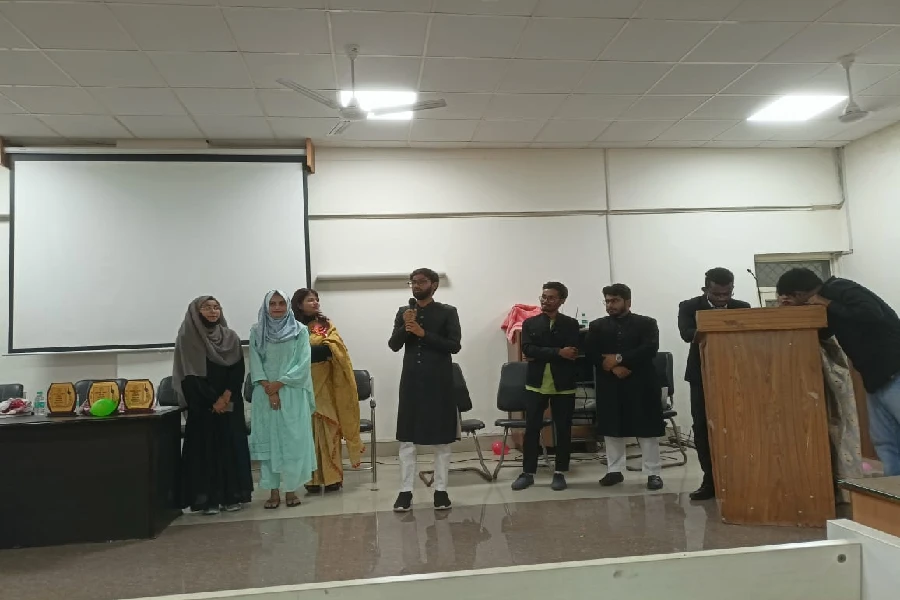
Munni Begum/Guwahati
Maulana Abu Syed Ansari, a young writer and researcher from Assam, has translated a celebrated and popular Assamese fairytale book into Arabic with the idea of honouring his favourite author and presenting Assamese culture to the world.
He recently translated the famous fairy tale book Burhi Aair Sadhu, a compilation of Assamese Folk Lore and folk tales, by Rasraj Laxminath Bezbarua into Arabic.
His book will soon be available online and he plans to sell it in 25 Arabic-speaking countries. For the uninitiated, it is pertinent to mention that Arabic is the official language in 22 countries and is spoken across 56 countries.
"Many Arabic books have been translated into Assamese, although very few or no Assamese books have been translated into Arabic. Our Assamese literature is very rich. That is why I am talking about the diversity and beauty of Assamese literature," he said.
 Burhi Aair Sadhu book
Burhi Aair Sadhu book
“I wanted to present our rich culture and history to Arabic readers because translation is an important medium for the exchange of language and culture. I chose Rasras Laxminath Bezbarua's 'Burhi Aair Sadhu' is one of the most beautiful collections of Assamese literature and culture.”
Abu Saeed Ansari is a resident of Sontali near Nagarbera in the Kamrup district and is currently an Arabic language research student at Jawaharlal Nehru University, Delhi. The collection of fairy tales was published in May by the Egyptian publishing house Dar al-Mashria al-Maghribia Lil-Nasr Bal-Tawzi in Cairo.
"I faced many challenges while translating because Assamese and Arabic languages and cultures are very different. It was not possible to translate many Assamese words directly into Arabic I undertook the work and translated one or two pages daily as I was studying Arabic for my postgraduate degree.”
Burhi Aair Sadhuis one of the greatest works of Assamese literature. It been translated into several foreign languages including English and Spanish. This expresses the universally accepted idea of the old woman's fairy tale.
 Maulana Abu Syed Ansari at work
Maulana Abu Syed Ansari at work
“The book is a tribute to the late Laxminath Bezbarua, whose literature has enriched the treasury of Assamese literature. Since I am a fan of Bezbarua and grew up listening to his collection of stories 'Burhi Aair Sadhu', I thought of translating this book into Arabic to make the immortal works of Rasraj Laxminath Bezbarua accessible to more people in the world.”
Abu Saeed Ansari received Islamic education (Maulana) from Darul Uloom Deoband and he later graduated from the Aligarh Muslim University.
 Abu Syed Ansari at a function in the University
Abu Syed Ansari at a function in the University
He completed his Master's degree in Arabic Literature from the JNU and he is pursuing his PhD at the Center of Arabic and African Studies, JNU.
“I will continue to work to translate Assamese literature into Arabic shortly. Arabic is the official language in 22 countries and Arabic is used informally in 56 countries I will try to take it to the middle. The book I am currently translating will be available to Arabic readers at the Cairo Book Fair in January.
This is certainly a commendable effort by Abu Saeed Ansari. Therefore, the 'Story of the Old Woman' is now popular in the Arab world. The book is already available in bookstores in Cairo, Egypt.
The Arabic version of 'Burhi Air Sadhu' will be soon available in India.
ALSO READ: Irtiqa Ayoub broke barriers to become the first woman Rugby coach in J&K
Ansari said he translated the collection of fairy tales in an attempt to build a strong bridge between Assamese and Arabic languages, literature, and culture.
